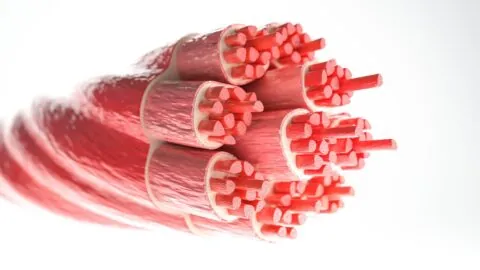April 26, 2024
Scientists have discovered that frequently interrupting prolonged sitting with physical activity, such as short walks or squats, can help control glucose levels in overweight and obese males [1]. Don’t just sit there! Prolonged sitting is the curse of modern times. It has been associated with various health problems, such as diabetes, poor heart health, weight...
April 22, 2024
With an in-depth examination tool in hand, researchers publishing in Aging have done a preliminary examination of the muscle protein differences between younger and older people and how older people's proteins change with exercise. The power to take a close look This paper begins with a discussion of proteomics, the science of analyzing what proteins...
February 20, 2024
A new study has reported that adopting more healthy lifestyle habits continuously lowers mortality risk, resulting in many years of added life expectancy [1]. The magnificent eight Lead a healthy lifestyle, and you will live longer. This sounds trivial, but it is important for geroscience to quantify just how much lifespan extension is associated with...
February 01, 2024
In the International Journal of Cardiology, researchers have described five styles of exercise and compared them to mortality risk. How much is the right amount? It is well known that physical activity is associated with a significantly diminished risk of death by cardiovascular disease, the leading cause of death around the world. However, it has...
January 22, 2024
Today in GeroScience, researchers have published an analysis of a cohort study, concluding that adherence to physical activity recommendations can mitigate the increased mortality associated with disability. Simply being able to live In this paper, disability refers to impediments to the basic activities of daily living (ADLs), such as moving, dressing, showering, and eating. Disability...
January 17, 2024
A review recently published in BMC Biology suggests that taking gerotherapeutics while exercising doesn’t have advantages over separate treatments [1]. Are two approaches better than one? Exercise is a well-established intervention that ameliorates several aspects of aging. Similarly, other research suggests that certain drugs, known as gerotherapeutics, target biological processes in a way that benefits...






